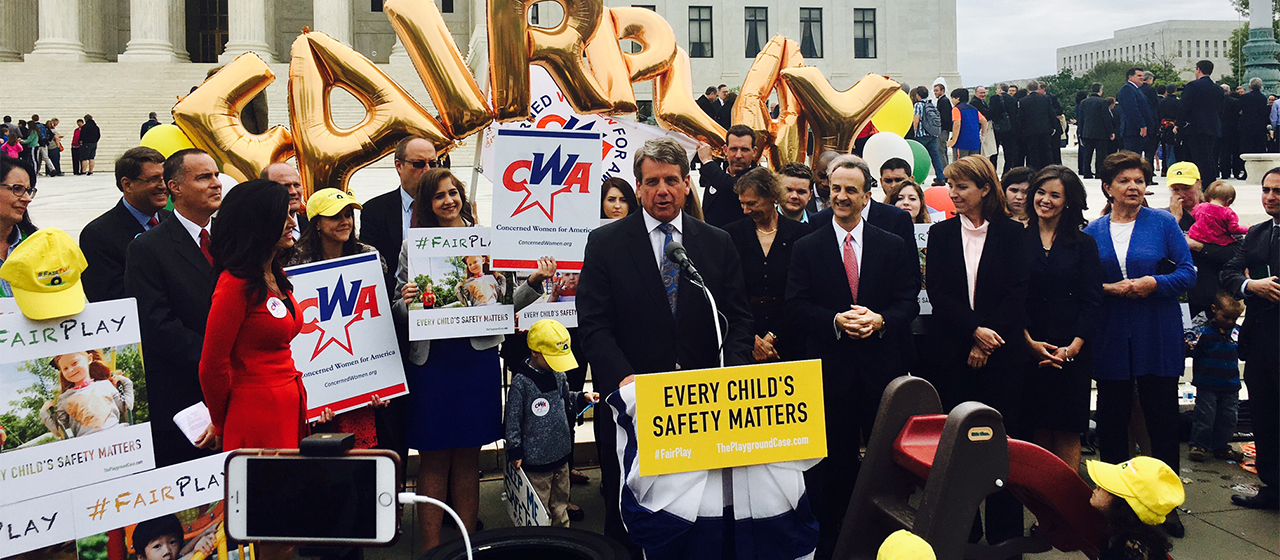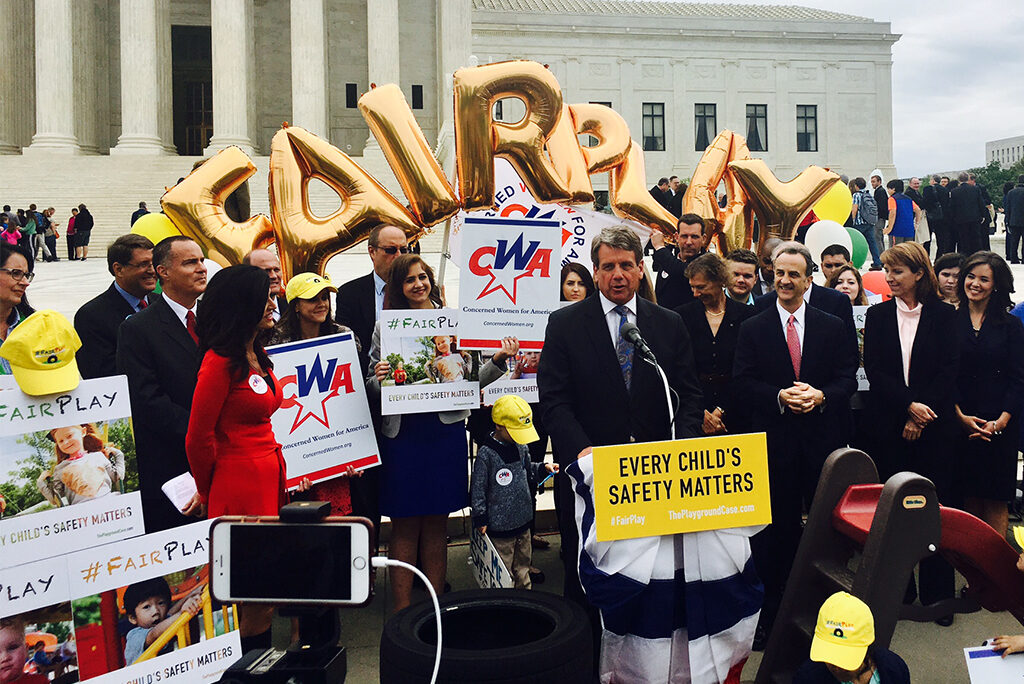
While The Lutheran Church—Missouri Synod is not a party to the litigation, Alliance Defending Freedom (ADF) attorneys are representing Trinity Lutheran Church in Columbia, Mo., in the case known as Trinity Lutheran Church v. Comer (formerly Pauley), which came about after Trinity sought to participate in the 2012 Playground Scrap Tire Surface Material Grant Program to resurface its playgrounds with the safer, recycled tire products provided by the supposedly neutral program. The Missouri Department of Natural Resources later decided Trinity’s learning center was ineligible for the program — a determination purportedly made on an interpretation of a state-constitution provision prohibiting government aid to religion. The U.S. Supreme Court is expected to rule on the case by late June.
A version of the following commentary originally ran in the St. Louis Post-Dispatch on April 23. The commentary is used with ADF’s permission for Reporter Online. — Editor
By James Gottry
On April 19, an unusual scene played out on the steps of the U.S. Supreme Court. Bystanders were treated to a portable playground of sorts, complete with rubber tires, a plastic slide, children in bright yellow baseball caps, and large helium-filled balloons spelling out the words “Fair Play.”
Inside, the justices took their own figurative trip to the playground, as the high court heard oral arguments in Trinity Lutheran Church v. Comer, a case involving a little playground at a little preschool in Columbia [Mo.]. But, as is often the case, little things mean a lot. Indeed, the outcome could determine whether the government can exclude some groups from neutrally available public benefits solely because they are religious.
As to why a preschool and its playground are at the center of a dispute before the Supreme Court, that is, both figuratively and literally, where the rubber meets the road. Trinity Lutheran Church operates a preschool called Trinity Lutheran Child Learning Center, which has a playground that students and the community at-large use. In 2012, Trinity applied for a state program that makes playgrounds safer by partially reimbursing grant recipients for rubberized surface material they purchase for their playgrounds.
The program, known as the Missouri Scrap Tire Grant Program, doesn’t just protect students from head injuries and scraped knees, [but] it also benefits the environment because the surface material is made from recycled tires, thereby reducing the number of tires in landfills. A tax on all tire purchases funds the program, ensuring that the community pays and the community benefits.
Unfortunately, like a spin on the merry-go-round after one too many hot dogs, what happened next left the preschool director, students, community members and people of faith feeling less than stellar — and decidedly second-rate.
Knowing that its current playground surface of jagged pea gravel posed a hazard to its students, as well as to the community children who use the playground on evenings and weekends, Trinity applied for the program. Like other organizations, its application was evaluated based on a number of criteria, including product description, the percentage of low-income families benefited, and whether the school provided a detailed plan for installation of the surface material. Of the 44 applications received, Trinity’s ranked fifth, and 14 grants were awarded. The decision was simple math, until state officials bumped Trinity off the list of recipients.
The state’s argument was straightforward (though flawed): The state constitution prohibits aid to religion, and state officials broadly interpreted this provision to ban a religious nonprofit even from receiving a neutrally available public benefit. The problem with this position, though, is that the First Amendment forbids discrimination on the basis of religion, and it forbids any government official from punishing an organization or an individual simply for being religious.
Trinity Lutheran and other nonprofits seek parity, not preference. They seek a commonsense — and constitutional — system in which members of the community are treated equally, regardless of where they worship or which playgrounds they frequent. A skinned knee hurts just as much on the grounds of religious preschool as it does at a secular one. So why should we treat them differently?
Early indications are that the Supreme Court may be poised to offer a ruling protecting religious nonprofits from such heavy-handed hostility. During oral arguments, several of the justices expressed skepticism toward the state’s position. Justice Elena Kagan said the state’s position imposed a “clear burden on a constitutional right” because “people of a certain religious status are being prevented from competing in the same way everybody else is for a neutral benefit.” Newly confirmed Justice Neil Gorsuch referred to the state’s actions as “discrimination on the basis of status of religion.”
The Supreme Court’s decision is expected in late June. Even though school will be out for the summer, the court has the opportunity to teach all government officials a valuable lesson: Whether on the playground, inside the walls of a community center, or on the grounds of a nonprofit … when it comes to religion, the Constitution requires government to play fair.
James Gottry is legal counsel with Alliance Defending Freedom, which represents Trinity Lutheran Church of Columbia, Mo.
Resources
- Reporter Online (Jan. 19, 2017): Supreme Court to hear ‘hostility’ case involving church playground
- Amicus Briefs: The LCMS has signed onto briefs for cases pertaining to religious liberty.
- Free to be Faithful: Religious liberty education and awareness campaign from the LCMS
Posted May 3, 2017 / Updated May 8, 2017

